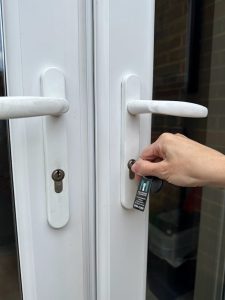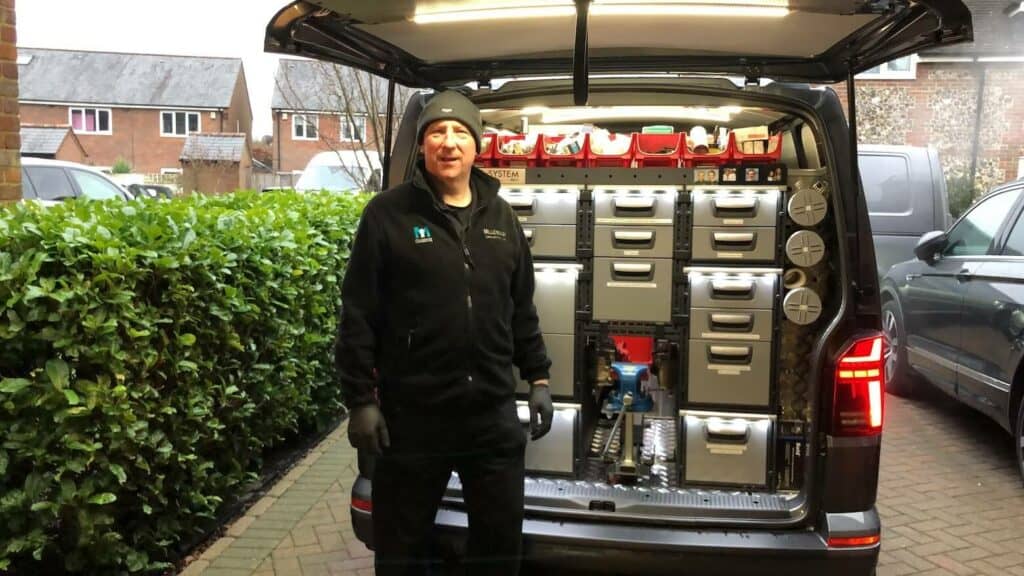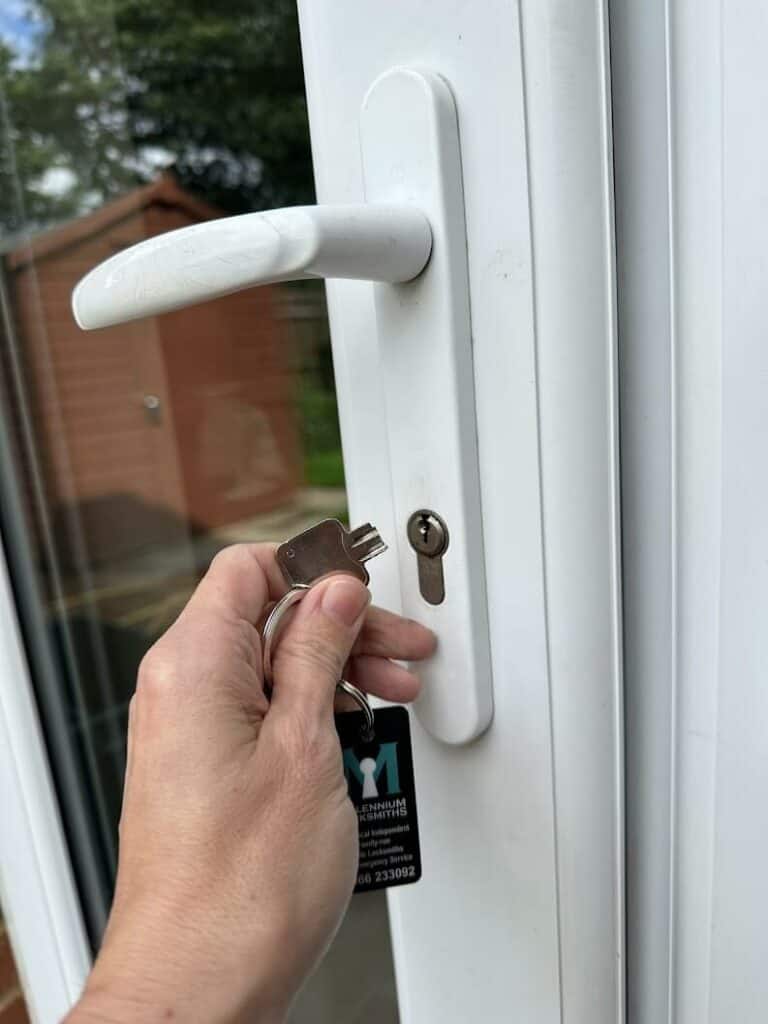uPVC is the most common type of door and window material in the UK. It’s cheap, durable and easy to maintain. However, uPVC can have a few issues in cold weather. Here are some of the most common problems that you may face with your uPVC when it gets cold:
Damaged windows – If your windows are already damaged, they might not withstand the cold temperatures. This means that they will start to crack or even break completely.
Frozen locks – The locks on your doors may freeze during winter and become difficult open or close. This can happen if you don’t have enough insulation around them or if there’s no draft excluder installed behind them. You should ensure that these areas are well insulated so they don’t get too cold and cause problems in your home during the wintertime.
Water leaking – If water is allowed to leak into your home from outside, then this could cause damage to your walls, floors and ceilings over time as the moisture starts to build up inside the property. This can lead to mould growth and other issues that professionals specialising in this work may need addressing.
Table of Contents
Don’t let the cold ruin your uPVC door!
uPVC doors are one of the most common door types in our beloved homes. Unlike their metal and wooden counterparts, uPVC doors offer a range of benefits. uPVC doors are a cost-effective option for those searching for quality doors. uPVC doors can, however, warp in the cold drops we experience in the UK. Due to their polymer construction, uPVC doors and frames can sometimes warp in the cold. This post will discuss how seasonality can affect your doors and what to do in certain situations. Most uPVC doors can withstand the changes they face in the cold, but it’s something to consider.
If you need a new uPVC door, this could be the ideal time to invest in one. The cold weather can be harsh on your home and your family’s health, but it can also cause damage to your property.
If you have an older uPVC door, it may not be able to withstand the rigours of winter and will end up letting out a lot of heat. This is especially true if there are cracks or gaps in the frame or window. It could even get damaged by ice and snow.
Replacing your old uPVC door with a newer model will help keep your home warm during the winter months and save energy at the same time. You’ll also enjoy more light because modern doors have double glazing, allowing more natural light than older models.
Common uPVC issues in the cold:
uPVC doors can lock up when exposed to harsh colds. The problem is usually caused when the uPVC frame contracts. This change in the tolerances is enough to impede the door’s locking. This can be frustrating, especially when you try and diagnose the issue yourself. Because of the slight change in dimensions, it’s hard to spot the issue by looking at the door.
The alignment of your uPVC door is vital to its function of it. It has to be perfectly aligned to close and lock as it should. The door can be forced close, but this will cause permanent damage. Continued use, while the frame is out of alignment will damage the door.
This isn’t your only issue with a uPVC door in the cold. uPVC doors can also become brittle in the cold and are prone to cracking. Whilst this might only be superficial, there may also be underlying damage. Locks can also start playing up in the colder weather highlighting issues your door may have. This is more apparent in exterior doors that expose the locks to direct cold.
With uPVC doors being used across the UK, homeowners must understand how to maintain their uPVC doors to keep them working throughout the Winter. People can unknowingly damage their uPVC doors if they aren’t careful, exposing them to unnecessary repair costs and making themselves targets for burglary. There’s a good chance that there’s a uPVC door in your home keeping you safe and secure right now. In this post, we go through a few things to consider when you’re thinking about the security of your home.
 uPVC doors are prevalent in the UK since most homes use them for various purposes. uPVC doors are great for the modern home as they offer cost-effective solutions for the external doors of a property. However, uPVC doors can be affected by temperature drops, which is to be expected when we start seeing Autumn and Winter.
uPVC doors are prevalent in the UK since most homes use them for various purposes. uPVC doors are great for the modern home as they offer cost-effective solutions for the external doors of a property. However, uPVC doors can be affected by temperature drops, which is to be expected when we start seeing Autumn and Winter.
When uPVC doors start to lock up, the problem usually stems from the frame itself. The frame will contract and shift, which results in a shift in the tolerances between the lock and the frame. This will cause significant issues, especially when you’re trying to lock/open the door, as they won’t be aligned as they should be. Continued use in this state will permanently damage the lock mechanism, which can be costly to repair.
This isn’t the only reason your locks might pack up in the Winter. The change in specification with the colder weather can always expose underlying issues with your locks. External locks for uPVC doors tend to show this as the change in weather usually highlights any issues the lock might have.
What can I do?
If you’re currently having issues with your uPVC lock and think it’s related to the weather, you can work with a professional locksmith from Millennium. If you continue using your uPVC door while it’s having issues, you can cause irreparable damage to your lock. It’s best to consult a professional who knows what they’re looking at. They’ll work with you to figure out the problems, consulting with you to ensure you’re fully informed on how to move forward. From repairs to replacements, they’ll be able to offer the best solution for your issue, taking the appropriate steps to repair your door and informing you on the way.
uPVC doors are an excellent solution for home security as they are one of the most secure doors on the market. The problem is that if your lock/mechanism isn’t working as it should, it seriously dampens the security it offers. There are ways of bypassing dysfunctional locks, and budding criminals have a way of detecting whether or not your lock is working.
Most home’s that are having trouble with their doors need a re-alignment from a professional locksmith who knows what they’re doing. Servicing your lock is also a good way of getting it working correctly and ensuring it functions for the future. A well-serviced lock is a lock that will last for years. Having a professional who knows what they’re doing will constantly reassure you when you’re out of the house since you’ll know your home is secure.
Why is my uPVC door not closing in cold weather?
The main reason your door is not closing correctly is the cold weather. The weather will make the uPVC door warp, so it will not close properly. To ensure that your doors close correctly, it is essential to check them in winter.
If you find any problems with your uPVC doors in winter, you should get them fixed as soon as possible before they break entirely and cause you problems with security or comfort.
Many things can cause problems with uPVC doors in winter:
- The frame may have become warped or distorted due to temperature changes; when it freezes outside, it won’t sit flat anymore and may even buckle slightly under pressure from wind or rainwater pouring against it when closed.
- If there’s been a lot of rain recently, water can leak into places with gaps between panels or frames that were poorly fitted together originally.
Working with Millennium:
If you’re worried about the security of your property, call our team today! Working with Millennium Locksmiths will reassure you that you’re working with professionals. If you’re worried about your uPVC door and have had issues before, we’ll gladly help. Visit our website to learn more about our services, or call us today! – uPVC Doors
Looking for locksmiths in Bicester and surrounding areas? Contact Millennium Locksmiths today for free locksmith quotes.








